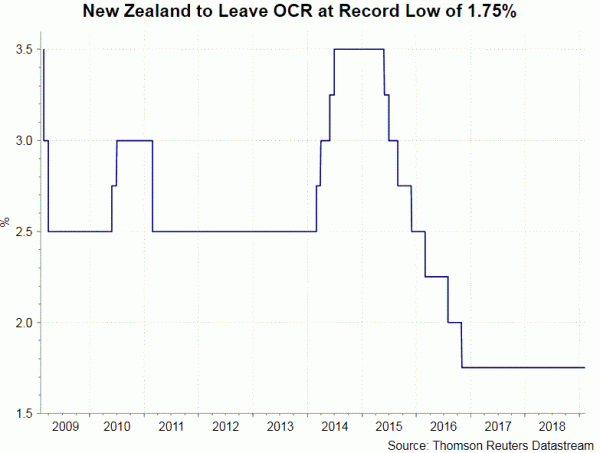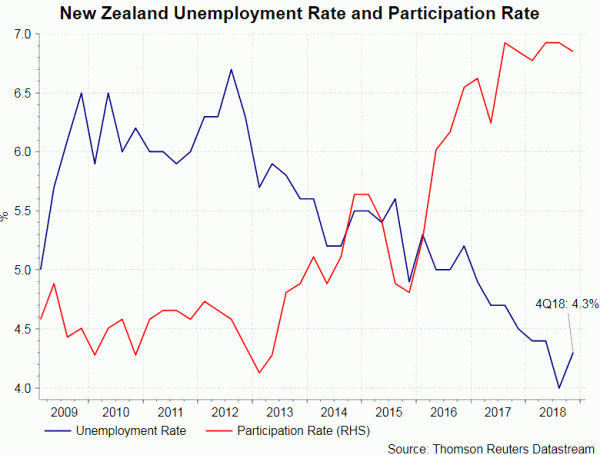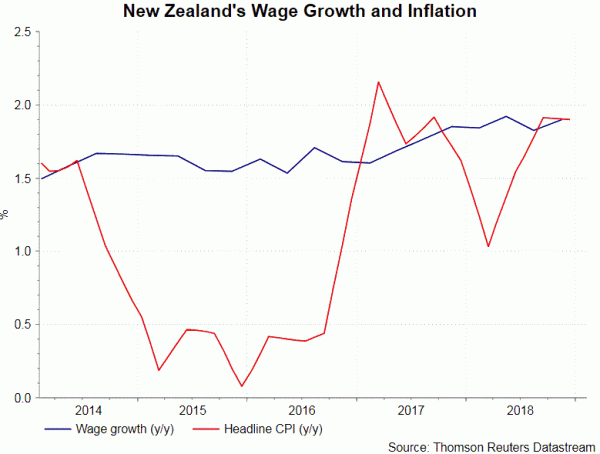We expect RBNZ, at next week’s meeting, to leave the OCR unchanged at 1.75% and downgrade its economic growth forecasts. We believe the tone would be tilted to the dovish side as both global and domestic environment deteriorated since November. Increased downside risks and heightened uncertainty likely warrant a push back of the next rate move.
The unemployment rate climbed higher to 4.3% in 4Q18, from a decade low of 4% a quarter ago. The number of people employed increased only +2K during the quarter, the lowest since mid-2017, while the participation rate slipped to 70.9% from 71.1%. The report also shows that the number of unemployed male increased +8K to 65K, while the number of female unemployed added +2K to 55K. The phenomenon that men are more likely to be unemployed than women, first time since 2010. If persists, this could lead to weakness in wage growth, given the fact that male employees are earning 20% more than their female counterparts on average.
On wage, the annual growth improved to +2%, from +1.9% in 3Q18. GDP growth decelerated to +1.5% q/q in 3Q18, weaker than RBNZ’s forecast of +0.7%. This could lead to downward revision on the economic outlook. Headline inflation steadied at +1.9%y/y in 4Q18, higher than consensus of +1.8% but below the central bank’s target +2%.
As an economy highly reliant on exports of food and raw materials, New Zealand’s economic developments are significantly affected by its trading partners. As PM Jacinda Ardern suggested, “further reductions in Chinese exports could cause a material slowdown in its economy, with adverse effects for New Zealand exporters”. As such, trade negotiations between the US and China are critical to New Zealand’s economic outlook. Should China’s moderation in growth accelerate, it would diminish the country’s demand for New Zealand’s exports, hence affect New Zealand’s growth outlook.
On the monetary policy guidance, the RBNZ would likely reiterate the stance that “the next move in the OCR could be up or down”. While the majority of market participants judge that the policy rate has bottomed at the current 1.75%, some believe that further rate cut is possible. We expect there would be no rate change at least until second half of 2020.



